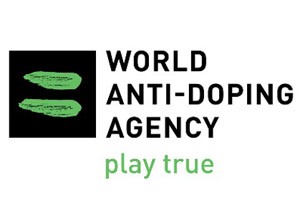Howman reacts to Australian’s resignation from cycling’s bio passport panel
 Responding to questions put to WADA about Michael Ashenden’s decision to step down from cycling’s biological passport programme, its Director General David Howman has said that he is pleased that the anti-doping expert will continue to work with the World Anti Doping Agency.
Responding to questions put to WADA about Michael Ashenden’s decision to step down from cycling’s biological passport programme, its Director General David Howman has said that he is pleased that the anti-doping expert will continue to work with the World Anti Doping Agency.
Ashenden said on Tuesday that he was resigning from the cycling role because of a strict confidentiality clause requested by the Lausanne Athlete Passport Management Unit (APMU).
It has taken over from the UCI in running cycling’s biological passport programme. According to Ashenden, he and the other experts are required to sign a contract that includes an undertaking not to speak about the passport programme for eight years after they leave.
He told VeloNation early on Tuesday that he felt this would effectively bring about an omerta in anti-doping.
VeloNation contacted Howman for a reaction to the news. “Dr. Ashenden is an independent contractor and free to determine what contracts he wishes to sign,” he responded.
“WADA has confidentiality agreements for all of its experts, including Dr. Ashenden, that are perhaps not as extensive as that mentioned in today’s press articles about the Lausanne APMU.”
Ashenden told VeloNation that he had no issues with the contract requirements of WADA, but that the APMU clause went too far and was counter-productive.
He has worked alongside WADA for several years, and combined with it during the Alberto Contador appeal hearing with CAS last November. Howman said that he was glad that the anti-doping scientist would continue to play a key role.
“I am pleased that Dr. Ashenden has signed our agreement of confidentiality and remains involved on WADA’s Expert Panel, thereby continuing to contribute to the Athlete Biological Passport Program,” he said.
Meanwhile the UCI gave a brief comment early on Tuesday about the matter. It thanked him for his ‘contribution to the UCI Biological Passport Program,’ then clarified what it said were misleading and incorrect comments in some press reports ‘concerning anti-doping processes and the relationship between external experts and the UCI.’
It spoke of the change in the management of the system, which came in several months ago.
“In compliance with the World Anti-Doping Agency Athlete Biological Passport Operating Guidelines released on January 2012, the Athlete Passport Management Unit (APMU) coordinates all blood passport results evaluation directly with external independent experts. The UCI is not involved in any way in this part of the process,” it stated.
Ashenden made that clear when speaking to VeloNation early on Tuesday, but some media had initially suggested his frustration was with the UCI.
He had previously expressed concerns about what appeared to be a slowing-down of the passport programme. However he said today that his reason for resigning was completely based around the confidentiality clause.
Ashenden also spoke on Tuesday about questions he had about Alberto Contador’s blood levels during the 2010 Tour de France.